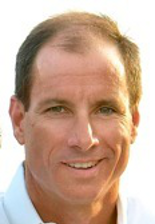Guest Expert
Interview with Radio Host, Jeff Copper, on Parenting & ADHD
Attention Talk Radio Host, Jeff Copper, is an ADHD Coach and a leading interviewer in the ADHD world. In this interview Jeff shares HIS perspectives on parenting in the realm of ADHD. Download a free tipsheet "The Parent's Guide to Motivating Your Complex Kid" to help your child find the motivation to do... anything and everything! Attention Talk Radio Host, Jeff Copper, on Parenting in the Realm of ADHD Elaine: Jeff, if there was a magic wand to help make things easier for parents who are raising ADHD kids, what do you think it would be? Jeff: We all want our kids to pay attention to the right thing. When they’re young, it’s easy to direct their attention. When puberty hits, the brain chemicals that are being released are designed to transform your child to become independent. Directing them becomes less effective because they’re trying to explore and become their own selves. As a parent, we love them, we want the best for them, and we want them to pay attention to the “right” things. But, at the end of the day, nature’s against us. The trick to parenting is to relax and realize that you can’t actually direct their attention. The best that you can do is to create an environment that allows them to discover what is important to them. Elaine: Is there a right thing for ADHD kids to pay attention to? Jeff: Not really. As a parent, you want to create an environment for your kids to make their choices. It’s a paradigm shift. Instinctively, we want to direct our kids and protect them from harm. The challenge is to teach them to discover for themselves. It’s really a coach-like opportunity for parents. You can ask questions that encourage them to consider their choices. They may or may not choose to consider your question. You can’t control that. But. In that moment, as they are making their own discoveries, you’ll be much more effective than you would have been by telling them what to do, or what not to do. Elaine: Why is it important for ADHD kids to learn to make their own choices? Jeff: Telling kids what to do and how to do it doesn’t work for kids with ADHD. Your child will do much better when s/he discovers how s/he organizes herself, or keeps time, or what s/he’s interested in. Letting go is really hard for parents, because you can’t control what happens. When you do let go, and make that paradigm shift in your mind, it’s a completely different approach to parenting. You have less control, but in the long run, its more effective, so long as you’re involved in your child’s life. Elaine: So long as you’re involved in your child’s life? Jeff: I learned something as a Boy Scout leader. It has less to do with loving your child, and more to do with paying attention to your child. Elaine: What’s the difference? Jeff: We’re social people, and we all like to be the object of attention. As a parent, if you’re paying attention to your child, it makes them feel good. Loving them is important, but you can’t let it replace the burden we have of paying attention to them. Don’t get me wrong. It’s really hard! It’s important to pay attention to your kids, but it’s often difficult for us to stop and listen to them. When they want to talk, it’s usually ill-timed. But if you can listen to them, and pay attention the way they want to be paid attention to, you’re in a better position when they are older. They’ll be more apt to listen to you, to take your questions and think about them. When you haven’t been paying attention, it’s easy for a teenager to discount what you say and blow it off. Elaine: You’ve talked a lot about creating an environment, and a paradigm shift. How can parents do that? Tell us the 3 most useful things parents can do. Elaine: Got any last thoughts? Jeff: If you do a good job with those 3 things, then your kids will make better choices for themselves, and ultimately do what you want them to do. It’s counter-intuitive. That’s the trick. Download a free tipsheet "The Parent's Guide to Motivating Your Complex Kid" to help your child find the motivation to do... anything and everything!
Article continues below...
Want to Motivate Kids?
Want to Motivate Kids?


